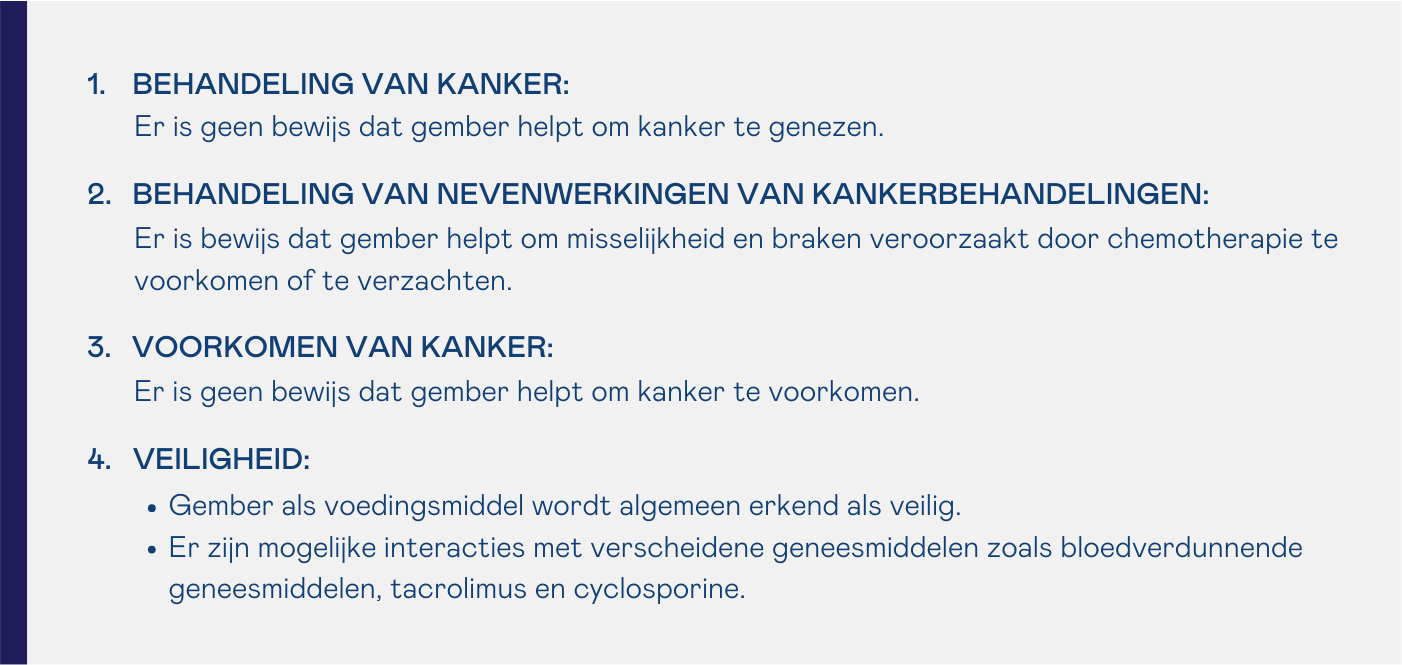Menu


Gember (Zingiber officinale) is een van oorsprong Aziatische plant. De wortel wordt als kruid gebruikt in keukenbereidingen of in thee en is vrij verkrijgbaar in de supermarkt. Verder kan gember ook in supplementvorm voorkomen onder de vorm van capsules, extract of olie. (1).
De actieve bestanddelen van gember zijn gingerol, shogoal en zingiberene (1). Gember wordt in de traditionele Chinese geneeskunde gebruikt bij de behandeling van misselijkheid en braken, als ontstekingsremmer, bij verkoudheid, om verslavingen te bestrijden, menstruatiepijn te behandelen, en om de vertering te bevorderen (1-15).
De meeste studies bekijken het effect van gember bij kankergerelateerde klachten zoals misselijkheid en braken veroorzaakt door chemotherapie.
Tot op heden zijn er geen goed opgezette studies die de toepassing van gember bij de behandeling van kanker nagaan.
Verschillende studies vermelden dat gember helpt om symptomen van misselijkheid en braken veroorzaakt door chemotherapie te voorkomen en te verzachten (1, 16-18).
Enkele studies onderzochten ook het effect van gember op vermoeidheid en levenskwaliteit. De resultaten van die studies zijn echter onduidelijk. Deze effecten moeten verder bekeken worden in grote goed opgezette interventiestudies (1, 17, 19-21).
Zeer beperkt onderzoek toont aan dat gember een aantal antikankermarkers zou verhogen bij onder andere darmkanker, maar de klinische betekenis ervan is onduidelijk. Er zijn geen studies die aantonen dat er enig effect is op het voorkomen van kanker (22). Meer wetenschappelijk onderzoek is noodzakelijk alvorens aanbevelingen te doen (4, 22-26)
Gember wordt algemeen erkend als veilig met een beperkt aantal nevenwerkingen en interacties.
Een dagelijkse inname van 4 g gember per dag
wordt algemeen erkend als veilig.
Mogelijke nevenwerkingen van een hogere inname van
gember zijn:
Gember kan de bloedwaarden van tacrolimus verhogen (31) en die van cyclosporine verlagen (32).
Professionele medewerkers beantwoorden je vragen